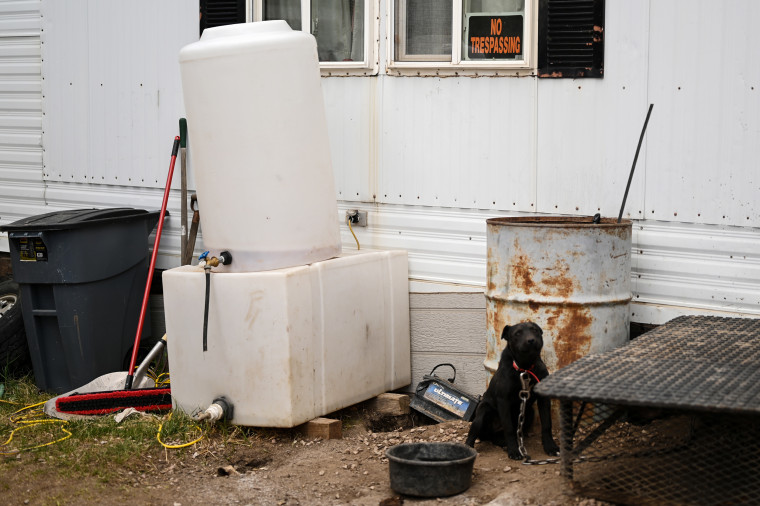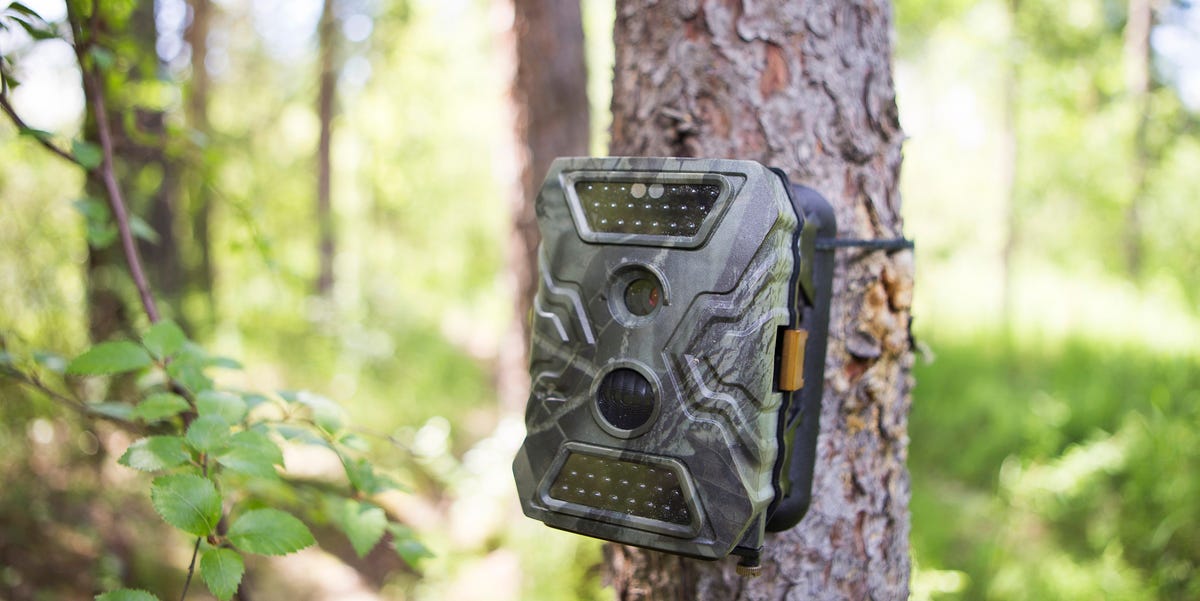PALMER LAKE, Colo. — Every day, retired Army veteran Donald Simmons must make a decision: pay $5 to shower at the nearest truck stop or risk taking a shower at home in contaminated water.
Lately, he has been reluctantly showering at the house, but he refuses to drink the tap water, fearing it will jeopardize his long-term health.
“It could cause cancer. Nobody knows what’s going on,” said Simmons, 68. “You have to shower.”
Simmons has lived at Elephant Rock Mobile Home Park, a small community about 25 miles south of Colorado Springs, for 13 years, and state officials say its water quality violations date back 15 years.
The two private groundwater wells that provide water to Elephant Rock contain high levels of radium, a cancerous radioactive metal, according to state officials.
Elephant Rock’s woes are part of a larger problem at Colorado’s 800-plus mobile home parks, where water and private wells have been under-tested for decades, said state legislators who have regularly received complaints about smelly, discolored water that tastes bad and could be hazardous to residents’ health.
While no data is available to show how widespread the issue is, some legislators said the complaints they’ve received make them believe many mobile home parks don’t meet federal drinking water standards. Until recently, the state didn’t require testing.
“We don’t know other than what residents are telling us,” said state Rep. Andrew Boesenecker, a Democrat from Fort Collins. “There are pieces that are alarming to anybody, like taste and odor, and where you wouldn’t want to put your kids in the tub at night.”
Many mobile home park residents have sought help from the Colorado Poverty Law Project, a nonprofit organization that works to prevent homelessness, the project’s deputy director, Jack Regenbogen, said.
“We’ve heard from residents that the water is pretty much undrinkable,” Regenbogen said. “We’ve seen pictures of brown water.”
He said many residents of mobile home parks have low incomes and are afraid to file water contamination complaints out of fear they will be evicted from the only homes they can afford. The median rent in Colorado is $2,200 a month, according to Zillow. In comparison, rent at mobile home parks can be as low as $600 a month.
Records from the Colorado Department of Public Health and Environment show that residents from about 15 mobile home parks have filed 37 complaints since tracking began in March 2020. The complaints cite illness, discoloration, bad taste and failure by park owners to notify residents of poor water quality.
Parks where residents have complained include Mountainside Estates in Golden, Peak View Park in Woodland Park and Elephant Rock.
A survey conducted last year by Voces Unidas de la Montanas, a Colorado-based Latino advocacy group, found that 40% of Latinos who live in mobile home parks in the state don’t trust the water.
“How do we still have these communities where these environmental injustices are happening?” said Alex Sanchez, the group’s president.
At Apple Tree mobile home park outside Aspen, resident Danule Feichko, 21, said the landowners don’t seem to care about the 900 or so residents who are forced to contend with yellowish tap water.
Park manager Henry Hendrickson declined to comment and referred questions to owner Investment Property Group, which didn’t respond to several phone and email messages.
“I haven’t drank the water in three years,” said Feichko, adding that he plans to move because of the water. “We have the worst water that you’ll ever see.”
His neighbor Matgahta DeSantiago, 63, also is apprehensive.
“I don’t drink the water. It’s contaminated,” she said.
No complaints about the park’s water quality have been filed with the state health department.
To address the growing concern, the state Legislature this year passed House Bill 1257, which will allow the health department to test the water at the hundreds of mobile home parks in the state over the next five years.
“People deserve dignified living,” said Rep. Elizabeth Velasco, a Democrat from Glenwood Springs and a primary sponsor of the bill who grew up in a mobile home park. Her district in western Colorado includes about 300 of them.
The law, which Gov. Jared Polis signed last month, also requires park owners to remediate any contaminated water found by the testing.

Elephant Rock, which contains about 40 mobile homes, was the target of an enforcement case by the state in 2009, when then-owner Lucky Kim Sr. was cited for failing to monitor and report nitrate, disinfectant residue and byproducts, lead and copper in the water, court records indicate.
The case was resolved through a consent decree, but more violations, such as failing to distribute an annual consumer confidence report, occurred from 2014 to 2018, the records show.
Since then, the park’s water has exceeded allowed radium levels 15 times, court documents show.
Persistent exposure to radium, a naturally occurring radioactive metal formed by the decay of uranium and thorium, can cause increased incidences of bone, liver or breast cancer, according to the U.S. Environmental Protection Agency.
In 2021, the state health department said it took “the extraordinary step” of issuing two advisories warning residents not to drink the water after Kim failed to respond to a violation and didn’t provide bottled water to residents within 24 hours of a notice to do so.
The state filed a lawsuit in August against Lucky Oliver Kim Jr., who became the park’s owner two years ago after his father’s death, alleging he violated drinking water laws.
State officials said Kim Jr. failed to remedy radium violations, increasing the risk of cancer to residents.
In February, Kim Jr. was cited for contempt of court for failing to appear and for failing to remediate the violations, court records show.
He was ordered to pay a civil penalty of $70,000, and he is being fined a remedial sanction of $100 a day until he submits a plan to provide safe drinking water that must be approved by state health officials.
Kim Jr. agreed to clean up the water, public health officials said, but so far he hasn’t taken steps to remove the radium from Elephant Rock’s two groundwater wells, which remain contaminated.
Attempts to reach Kim Jr. for comment were unsuccessful.
At least one Elephant Rock resident says she doesn’t have a problem drinking the water.
“It’s not bad water. It’s been tested numerous times, and it’s just fine,” said Sandy, who wanted to be identified by her first name only out of concern for her privacy.
But her neighbor Karolina Long, who is disabled and has lived there for 24 years, said she filters and boils the water before she uses it.
“I’m nervous to do anything with the water. We’ve been told there is radium going into the well,” she said. “What kind of damage will it do to us, not just me, but all of us?”


